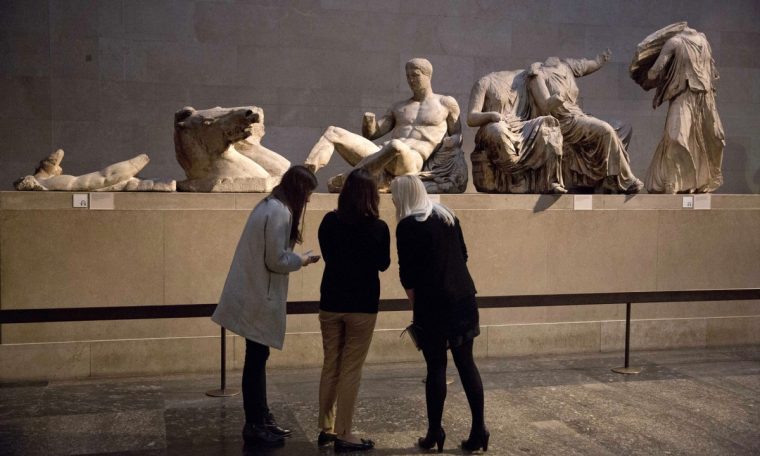
Greece has been asking Britain for decades to return marble pieces and sculptures from the Parthenon and the Acropolis of Athens. The dispute is old, but there may be a solution in the end. The president of the British Museum in London said he was open to an agreement for a partial return of the pieces.
Since the beginning of the 20th century, Greece has officially demanded the return of a 75-metre frieze that was taken from the Parthenon and moved to the English capital. The Mediterranean country still wants one of the marble caryatids that supported a small temple on the Acropolis of Athens, which was kept as one of the treasures of the British Museum.
Britain has always refused a refund on the grounds that the pieces were legally acquired through a purchase made in 1802 by the British diplomat Lord Elgin, who resold the pieces to the museum. However, Greece claims that the pieces were looted during the Ottoman occupation of its territory.
The matter came to the fore in March, when the British Museum was sued for preventing marble pieces from being 3D scanned. According to the Institute’s director of the Guardian newspaper, the Oxford Institute of Digital Archeology intended to create a three-dimensional version of the Greek pieces as a way to increase access to the material and resolve the dispute between Athens and London.
In April, Boris Johnson’s government even said it would begin talks with the Greek administration before UNESCO. However, the government backtracked saying that such a decision rests with the museum.
This week, the president of the British Museum made a statement showing his willingness to address the issue. In an interview with LBC Radio, George Osborne said that he is open to an agreement to share the pieces.
“I believe an agreement is possible in Athens and London to tell their story at the same time if we discuss this situation without too many preconditions or constraints,” he said.
Asked if it would be possible to exhibit the pieces for a while in Greece and later return to London, he said such talks would be possible. “Something that allows you to see in Athens in all their splendor and see them as examples of other civilizations in London,” he elaborated.
Public opinion in the UK is mostly in favor of returning the parts. A recent survey by the British YouGov Institute shows that 59 percent of participants believe the pieces should be repatriated. Eight years ago, the share of the population in favor of withdrawal actions was only 37%.
European cultural institutions have been under increased pressure to return pieces taken from their countries during the colonial period. In 2021, the University of Cambridge in Nigeria returned bronze works looted from the country nearly a century earlier.
Equipped with ancient pieces from civilizations around the world, the British Museum has so far declined to discuss the restoration of the works.



